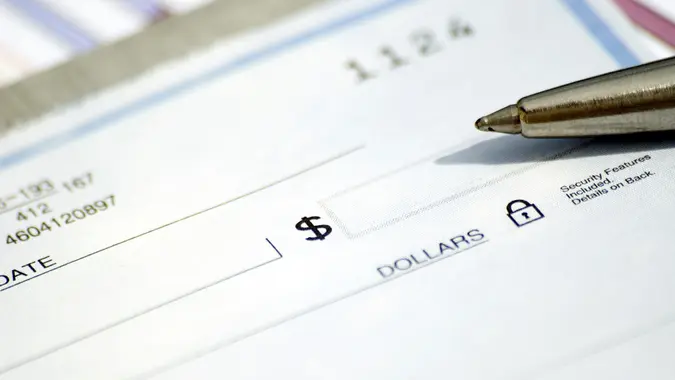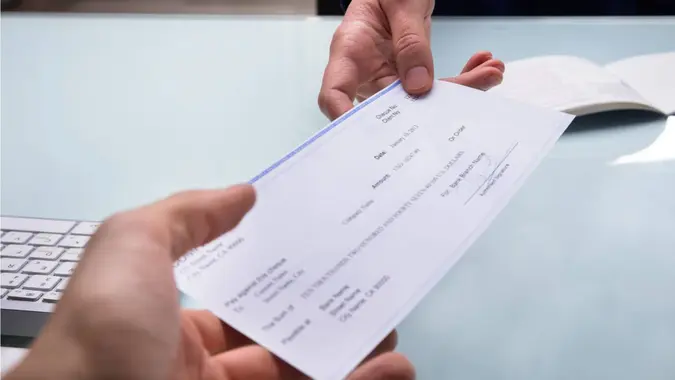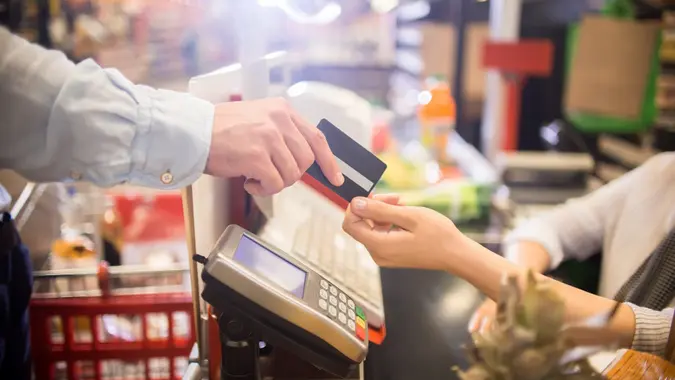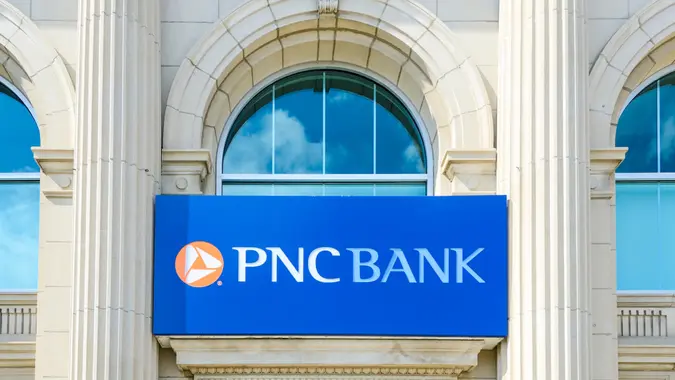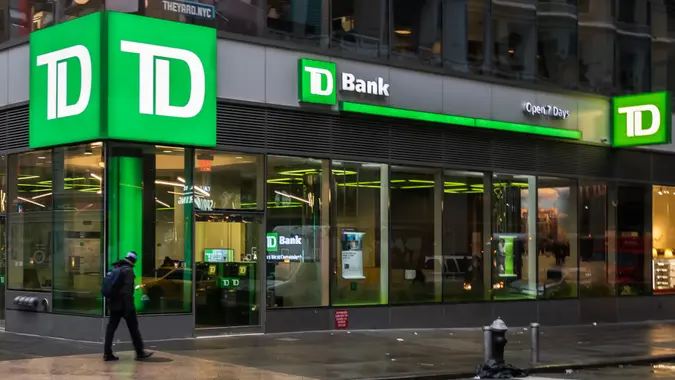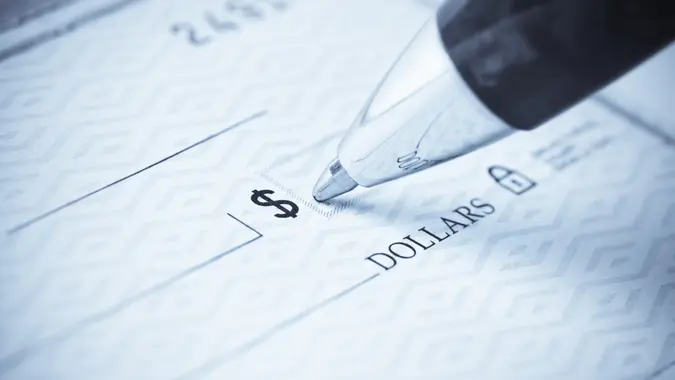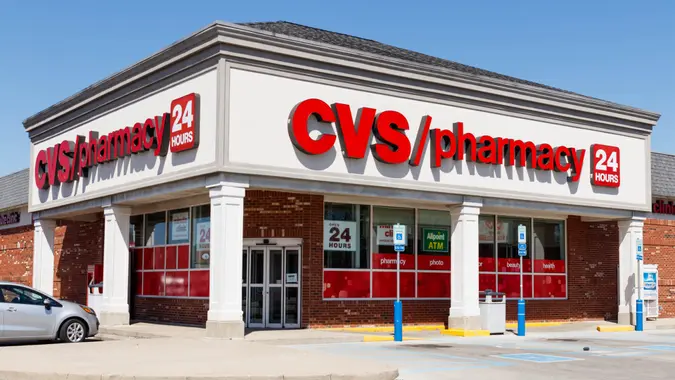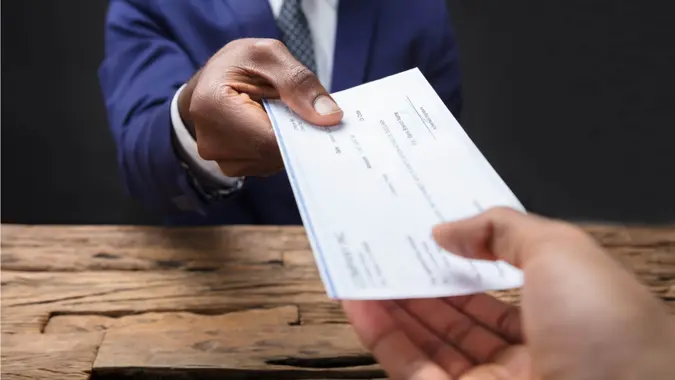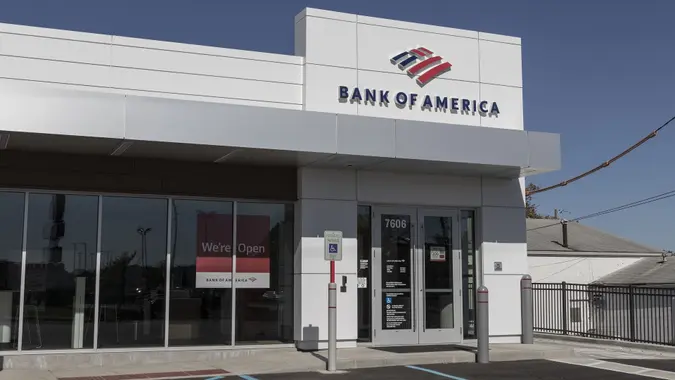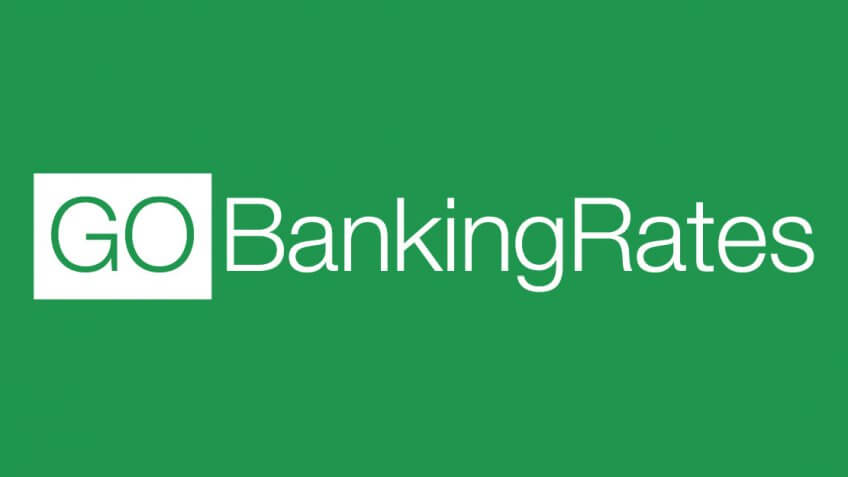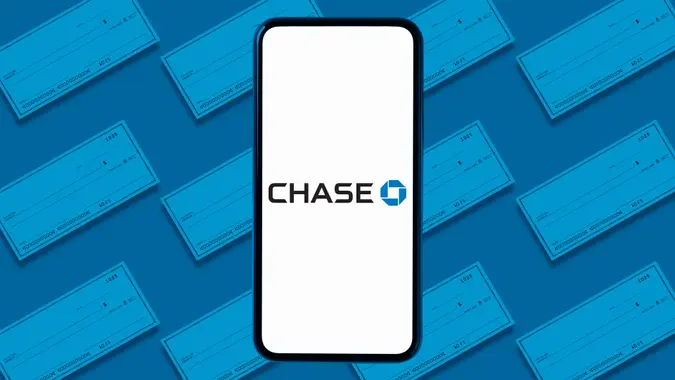How Much Money Should I Keep In My Checking Account?

Commitment to Our Readers
GOBankingRates' editorial team is committed to bringing you unbiased reviews and information. We use data-driven methodologies to evaluate financial products and services - our reviews and ratings are not influenced by advertisers. You can read more about our editorial guidelines and our products and services review methodology.

20 Years
Helping You Live Richer

Reviewed
by Experts

Trusted by
Millions of Readers
A good rule of thumb is having one to two months’ living expenses in your checking account. You should put the rest of your money into savings.
Why Does My Checking Account Balance Matter?
If an unexpected expense comes up, not having money in your checking account can cause overdraft fees or declined payments. Also, you may be charged a fee if you don’t keep a certain minimum balance.
On the flip side, keeping too much money in your checking account can hold you back since it doesn’t earn interest.
Plus, if someone gains unauthorized access to your account, you could be at risk of losing money due to theft or fraud.
How to Calculate Your Ideal Checking Account Balance
To calculate your ideal checking account balance, start by estimating your monthly expenses. Look at your regular bills, such as rent or mortgage, utilities, groceries and transportation costs.
Add these items up to get a baseline for how much money you need each month. After you figure out your expenses, add a little more for a buffer. Here’s a general breakdown you can use:
- 70% of your balance for bills and fixed expenses
- 20% as a buffer for unexpected costs
- 10% for discretionary spending like dining out or entertainment
You can adjust these percentages based on financial goals like paying off debt, working towards a savings goal or having a larger family.
Apps and Tools to Monitor Your Balance
There are apps that have features for tracking spending, creating budgets and setting financial goals.
Many banks also offer features like daily balance notifications and low-balance alerts. This can help you avoid overdraft fees and stay aware of your account status.
Check out this list of budget and money apps to find a tool that could work for you.
Examples of Optimal Balances
| Single Professionals | Families | Freelancers |
|---|---|---|
| Recommended balance: $2,000-$3,000 | Recommended balance: $5,000-$6,000 | Aim for a balance to cover at least two months’ expenses due to irregular income. |
| Provides a small buffer for unexpected expenses. Covers essentials like: – Rent – Utilities – Groceries |
Covers monthly household costs like: – Mortgage/rent – Childcare – Groceries – Other recurring expenses |
Provides stability during lower cash flow periods. Covers essentials like: – Rent – Utilities – Groceries |
How Much Money Should I Have in My Savings?
Most checking accounts earn very little interest. For that reason, it should only hold the money that will be going in and out of your account. The rest should go to your savings account.
Aim to have at least three to six months of expenses in a savings account as an emergency fund. Like the name suggests, don’t touch this money unless it’s for a surprise car repair or similar expense.
Check out our list of best high yield savings accounts to find the right fit for you.
Your Checking Account Strategy for Financial Stability
Your monthly expense and how much access you want to your cash will help you decide the right balance of your checking account. If in doubt, review and adjust until you find what works for you.
To make sure you’re getting the most out of your checking account, see which accounts we ranked as the best of the year.
Caitlyn Moorhead contributed to the reporting for this article.
Our in-house research team and on-site financial experts work together to create content that’s accurate, impartial, and up to date. We fact-check every single statistic, quote and fact using trusted primary resources to make sure the information we provide is correct. You can learn more about GOBankingRates’ processes and standards in our editorial policy.
- FDIC. "Deposit Insurance FAQs."
- Consumer Finance. "An Essential Guide To Building an Emergency Fund."
 Written by
Written by  Edited by
Edited by 



